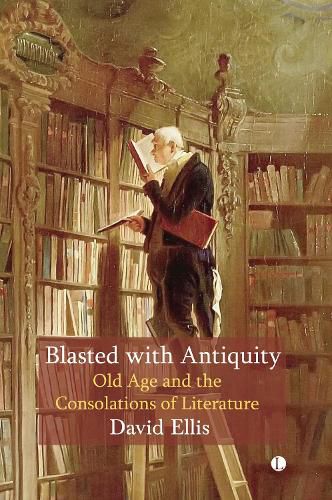Readings Newsletter
Become a Readings Member to make your shopping experience even easier.
Sign in or sign up for free!
You’re not far away from qualifying for FREE standard shipping within Australia
You’ve qualified for FREE standard shipping within Australia
The cart is loading…






Given the increasing number of old people, the proliferation of books about old age is hardly surprising. Most of these come from cultural historians or social scientists and, when those with a literary background have tackled the subject, they have largely done so through what are known as period studies. In Blasted with Antiquity, David Ellis provides an alternative. Skipping nimbly from Cicero to Shakespeare, and from Wordsworth to Dickens and beyond, he discusses various aspects of old age with the help of writers across European history who have usually been regarded as worth listening to. Eschewing extended literary analyses, Ellis addresses retirement, physical decay, sex in old age, the importance of family, legacy, wills and nostalgia, as well of course as dying itself. While remaining alert to current trends, his approach is consciously that of the old way of teaching English rather than the new. Whether 'blasted with antiquity' like Falstaff in Henry IV Part Two, or with the 'shining morning face' of an unwilling student, his accessible and witty style will appeal to young and old alike.
$9.00 standard shipping within Australia
FREE standard shipping within Australia for orders over $100.00
Express & International shipping calculated at checkout
Given the increasing number of old people, the proliferation of books about old age is hardly surprising. Most of these come from cultural historians or social scientists and, when those with a literary background have tackled the subject, they have largely done so through what are known as period studies. In Blasted with Antiquity, David Ellis provides an alternative. Skipping nimbly from Cicero to Shakespeare, and from Wordsworth to Dickens and beyond, he discusses various aspects of old age with the help of writers across European history who have usually been regarded as worth listening to. Eschewing extended literary analyses, Ellis addresses retirement, physical decay, sex in old age, the importance of family, legacy, wills and nostalgia, as well of course as dying itself. While remaining alert to current trends, his approach is consciously that of the old way of teaching English rather than the new. Whether 'blasted with antiquity' like Falstaff in Henry IV Part Two, or with the 'shining morning face' of an unwilling student, his accessible and witty style will appeal to young and old alike.